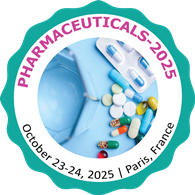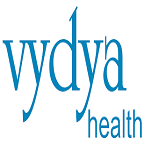sessions/Tracks
Track 1: Bio-Pharmaceutical Sciences
Bio-Pharmaceutical Sciences is a multidisciplinary field that integrates biology, chemistry, and pharmaceutical sciences to understand the development and behavior of biologically derived drugs. This track focuses on the discovery, development, characterization, and application of biopharmaceutical products such as peptides, proteins, monoclonal antibodies, vaccines, and gene therapies.
It explores the physical and chemical properties of drug molecules, their biological activity, and the mechanisms that govern their onset, duration, and intensity of action within the human body. Special emphasis is placed on bioavailability, therapeutic efficacy, and the use of biotechnology and molecular biology to engineer biologically active compounds for clinical use.
Pharma conferences 2025 | Pharmaceuticals 2025 | Pharmaceutical Conferences | AMPS-2025 | Pharmaceutical Meetings | Biopharmaceutical conferences | Pharmaceutical Sciences Conferences | Drug Discovery conferences | Bio pharma events| pharmaceutics events |Pharmaceutical Sciences | Pharma Networking Events | Biotechnology Conferences |
Track 2: Advanced Pharmacokinetics
Advanced Pharmacokinetics explores the dynamic processes that govern how drugs are absorbed, distributed, metabolized, and excreted (ADME) within the human body. This track provides a deeper understanding of the time course of drug concentrations in biological systems and how these influence therapeutic outcomes.
It emphasizes the importance of dose optimization, therapeutic drug monitoring, and individualized treatment regimens based on physiological, genetic, and lifestyle factors. By integrating mathematical modeling, clinical data, and modern analytical tools, pharmacokinetics plays a critical role in drug development and safe, effective medication use
Pharma conferences 2025 | Pharmaceuticals 2025 | Pharmaceutical Conferences | AMPS-2025 | Pharmaceutical Meetings | Biopharmaceutical conferences | Pharmaceutical Sciences Conferences | Drug Discovery conferences | Bio pharma events| pharmaceutics events |Pharmaceutical Sciences | Pharma Networking Events | Biotechnology Conferences |
Track 3: Pharmaceutical Sciences
Pharmaceutical Sciences is a core discipline that encompasses the design, formulation, development, and optimization of drug delivery systems to ensure safety, stability, efficacy, and patient compliance. This track bridges fundamental scientific principles with practical applications in the development of pharmaceutical products.
It focuses on preformulation studies, formulation strategies, drug-excipient compatibility, and the physicochemical properties of drug substances. With the rise of predictive modeling, automation, and artificial intelligence, pharmaceutical sciences have evolved to include advanced formulation techniques and robust optimization methods.
Pharma conferences 2025 | Pharmaceuticals 2025 | Pharmaceutical Conferences | AMPS-2025 | Pharmaceutical Meetings | Biopharmaceutical conferences | Pharmaceutical Sciences Conferences | Drug Discovery conferences | Bio pharma events| pharmaceutics events |Pharmaceutical Sciences | Pharma Networking Events | Biotechnology Conferences |
Track 4: Pharma Analytical Techniques and Instrumentation
Analytical techniques form the backbone of pharmaceutical research, development, and manufacturing. This track focuses on the latest advancements in analytical technologies and instrumentation used for the qualitative and quantitative evaluation of pharmaceutical compounds and products.
It highlights the critical role of method development, validation, and regulatory compliance in ensuring the safety, purity, potency, and stability of drug products. Participants will explore innovations that support faster, more precise, and highly sensitive analytical assessments across all stages of the drug lifecycle
Pharma conferences 2025 | Pharmaceuticals 2025 | Pharmaceutical Conferences | AMPS-2025 | Pharmaceutical Meetings | Biopharmaceutical conferences | Pharmaceutical Sciences Conferences | Drug Discovery conferences | Bio pharma events| pharmaceutics events |Pharmaceutical Sciences | Pharma Networking Events | Biotechnology Conferences |
Track 5: Clinical Pharmacology
Clinical Pharmacology is the discipline that studies the effects and movement of drugs within the human body, emphasizing the application of pharmacokinetic and pharmacodynamic principles in clinical settings. This track focuses on optimizing drug therapy by understanding how individual patient factors influence drug response and safety.This track is ideal for clinicians, pharmacologists, researchers, and healthcare professionals dedicated to improving patient outcomes through evidence-based drug therapy.
Pharma conferences 2025 | Pharmaceuticals 2025 | Pharmaceutical Conferences | AMPS-2025 | Pharmaceutical Meetings | Biopharmaceutical conferences | Pharmaceutical Sciences Conferences | Drug Discovery conferences | Bio pharma events| pharmaceutics events |Pharmaceutical Sciences | Pharma Networking Events | Biotechnology Conferences |
Track 6: Pharmaceutical Regulatory Affairs
Pharmaceutical Regulatory Affairs is a critical field that ensures the safe and effective development, approval, and commercialization of pharmaceuticals and medical devices across global markets. This track explores the complex landscape of regulatory guidelines, compliance strategies, and policy frameworks that govern drug development from discovery to post-marketing surveillance.
As regulations continuously evolve across different regions, this track aims to equip professionals with updated knowledge on regulatory submissions, intellectual property rights, and strategies for market authorization in various jurisdictions including the FDA, EMA, CDSCO and others.
Pharma conferences 2025 | Pharmaceuticals 2025 | Pharmaceutical Conferences | AMPS-2025 | Pharmaceutical Meetings | Biopharmaceutical conferences | Pharmaceutical Sciences Conferences | Drug Discovery conferences | Bio pharma events| pharmaceutics events |Pharmaceutical Sciences | Pharma Networking Events | Biotechnology Conferences |
Track 7: Pharmacovigilance and drug safety
Pharmacovigilance is the science and activities related to the detection, assessment, understanding, and prevention of adverse effects or any other drug-related problems. Despite rigorous clinical trials prior to approval, some side effects and safety concerns only become apparent once medications and vaccines are used in the broader, more diverse patient population over extended periods.
This track covers the full spectrum of drug safety monitoring, including post-marketing surveillance, risk management, and regulatory reporting to ensure ongoing patient safety and public health
Pharma conferences 2025 | Pharmaceuticals 2025 | Pharmaceutical Conferences | AMPS-2025 | Pharmaceutical Meetings | Biopharmaceutical conferences | Pharmaceutical Sciences Conferences | Drug Discovery conferences | Bio pharma events| pharmaceutics events |Pharmaceutical Sciences | Pharma Networking Events | Biotechnology Conferences |
Track 8: Pharmaceutical Industry
The pharmaceutical industry is a dynamic and evolving sector that drives innovation through research, development, and commercialization of new medicines. This track examines the industry’s landscape, including its structure, business models, intellectual property frameworks, and the challenges faced in bringing novel therapies from bench to market.
This track provides insights for industry leaders, business strategists, policymakers, and researchers to understand and navigate the complexities of the pharmaceutical ecosystem
Pharma conferences 2025 | Pharmaceuticals 2025 | Pharmaceutical Conferences | AMPS-2025 | Pharmaceutical Meetings | Biopharmaceutical conferences | Pharmaceutical Sciences Conferences | Drug Discovery conferences | Bio pharma events| pharmaceutics events |Pharmaceutical Sciences | Pharma Networking Events | Biotechnology Conferences |
Track 9: Drug Discovery
Drug Discovery is the initial and critical phase of identifying new chemical entities or biologics with therapeutic potential to treat unmet medical needs. This track focuses on the multidisciplinary approaches and innovative technologies used to discover and optimize novel drug candidates. This track is designed for researchers, medicinal chemists, biologists, and pharmaceutical scientists dedicated to accelerating the discovery of safe and effective new therapies.
Pharma conferences 2025 | Pharmaceuticals 2025 | Pharmaceutical Conferences | AMPS-2025 | Pharmaceutical Meetings | Biopharmaceutical conferences | Pharmaceutical Sciences Conferences | Drug Discovery conferences | Bio pharma events| pharmaceutics events |Pharmaceutical Sciences | Pharma Networking Events | Biotechnology Conferences |
Track 10: Pharmaceutical Nanotechnology
Pharmaceutical Nanotechnology focuses on the design and application of nanoscale materials and delivery systems to enhance the diagnosis, treatment, and prevention of diseases at the molecular level. This cutting-edge field aims to improve drug targeting, bioavailability, and therapeutic efficacy while minimizing side effects. This track is ideal for scientists, formulation experts, and clinicians interested in the transformative potential of nanotechnology in modern pharmaceutical research and healthcare.
Pharma conferences 2025 | Pharmaceuticals 2025 | Pharmaceutical Conferences | AMPS-2025 | Pharmaceutical Meetings | Biopharmaceutical conferences | Pharmaceutical Sciences Conferences | Drug Discovery conferences | Bio pharma events| pharmaceutics events |Pharmaceutical Sciences | Pharma Networking Events | Biotechnology Conferences |
Track 11: Medical Pharmacology
Medical Pharmacology is the study of how drugs interact with living organisms at cellular and molecular levels, focusing on the mechanisms of action, therapeutic effects, and adverse reactions. This track provides insights into the science behind drug actions and their application in clinical practice. This track is designed for pharmacologists, clinicians, researchers, and healthcare professionals aiming to deepen their understanding of drug effects and improve therapeutic outcomes.
Pharma conferences 2025 | Pharmaceuticals 2025 | Pharmaceutical Conferences | AMPS-2025 | Pharmaceutical Meetings | Biopharmaceutical conferences | Pharmaceutical Sciences Conferences | Drug Discovery conferences | Bio pharma events| pharmaceutics events |Pharmaceutical Sciences | Pharma Networking Events | Biotechnology Conferences |
Track 12: Pharmacoeconomics
Pharmacoeconomics is a branch of health economics focused on evaluating the costs and outcomes associated with pharmaceutical treatments. It aims to assess the value of drugs by comparing their economic impact and therapeutic benefits to guide healthcare decision-making and policy. By balancing costs against health outcomes, pharmacoeconomics helps optimize the use of medications to improve patient care and ensure sustainable healthcare systems.
Pharma conferences 2025 | Pharmaceuticals 2025 | Pharmaceutical Conferences | AMPS-2025 | Pharmaceutical Meetings | Biopharmaceutical conferences | Pharmaceutical Sciences Conferences | Drug Discovery conferences | Bio pharma events| pharmaceutics events |Pharmaceutical Sciences | Pharma Networking Events | Biotechnology Conferences |
Track 13: Radiopharmaceuticals
Radiopharmaceuticals are specialized medicinal compounds that contain radioactive isotopes used primarily for diagnostic imaging and targeted therapy. This track explores the development, applications, and regulatory aspects of radiopharmaceuticals in modern medicine. This track offers valuable insights for nuclear medicine specialists, radiochemists, pharmacologists, and healthcare professionals involved in molecular imaging and radiotherapy.
Pharma conferences 2025 | Pharmaceuticals 2025 | Pharmaceutical Conferences | AMPS-2025 | Pharmaceutical Meetings | Biopharmaceutical conferences | Pharmaceutical Sciences Conferences | Drug Discovery conferences | Bio pharma events| pharmaceutics events |Pharmaceutical Sciences | Pharma Networking Events | Biotechnology Conferences |
Track 14: Pharmacy Practice
Pharmacy Practice encompasses the roles, responsibilities, and professional standards of pharmacists in diverse healthcare settings. This track highlights the evolving scope of pharmacy, focusing on patient-centered care, medication management, and the integration of pharmacists into multidisciplinary healthcare teams. This track is designed for practicing pharmacists, clinical researchers, educators, and healthcare administrators dedicated to optimizing medication use and improving patient outcomes.
Pharma conferences 2025 | Pharmaceuticals 2025 | Pharmaceutical Conferences | AMPS-2025 | Pharmaceutical Meetings | Biopharmaceutical conferences | Pharmaceutical Sciences Conferences | Drug Discovery conferences | Bio pharma events| pharmaceutics events |Pharmaceutical Sciences | Pharma Networking Events | Biotechnology Conferences |
Track 15: Pharmaceutical Packaging
Pharmaceutical Packaging plays a critical role in ensuring the safety, stability, and efficacy of drug products throughout their shelf life and distribution. This track explores innovations, regulatory requirements, and challenges in packaging design and materials that protect pharmaceutical products and enhance patient compliance. This track is ideal for pharmaceutical scientists, packaging engineers, quality assurance professionals, and supply chain managers focused on advancing packaging technologies to meet industry and patient needs
Pharma conferences 2025 | Pharmaceuticals 2025 | Pharmaceutical Conferences | AMPS-2025 | Pharmaceutical Meetings | Biopharmaceutical conferences | Pharmaceutical Sciences Conferences | Drug Discovery conferences | Bio pharma events| pharmaceutics events |Pharmaceutical Sciences | Pharma Networking Events | Biotechnology Conferences |
Track 16: Drug formulation
Drug Formulation is the science of designing and developing a pharmaceutical product by combining the active drug substance with suitable excipients to create a stable, effective, and patient-friendly dosage form. This discipline ensures the drug’s optimal delivery, bioavailability, and therapeutic performance. Drug formulation bridges the gap between drug discovery and patient care by transforming compounds into practical, safe, and effective medicines.
Pharma conferences 2025 | Pharmaceuticals 2025 | Pharmaceutical Conferences | AMPS-2025 | Pharmaceutical Meetings | Biopharmaceutical conferences | Pharmaceutical Sciences Conferences | Drug Discovery conferences | Bio pharma events| pharmaceutics events |Pharmaceutical Sciences | Pharma Networking Events | Biotechnology Conferences |
Track 17: Drug screening
Drug Screening is the critical early-stage process in drug discovery that involves evaluating large libraries of chemical compounds or biological molecules to identify potential candidates with desired therapeutic effects. This process uses a variety of in vitro and in vivo assays to detect biological activity, toxicity, and pharmacological properties. Effective drug screening accelerates the identification of promising drug candidates and supports informed decision-making in the drug development pipeline.
Pharma conferences 2025 | Pharmaceuticals 2025 | Pharmaceutical Conferences | AMPS-2025 | Pharmaceutical Meetings | Biopharmaceutical conferences | Pharmaceutical Sciences Conferences | Drug Discovery conferences | Bio pharma events| pharmaceutics events |Pharmaceutical Sciences | Pharma Networking Events | Biotechnology Conferences |
Track 18: Drug Metabolism
Drug Metabolism refers to the biochemical modification of pharmaceutical substances by living organisms, primarily through enzymatic processes in the liver and other tissues. This critical phase influences the duration, intensity, and elimination of drugs from the body, affecting both efficacy and toxicity. Understanding drug metabolism is essential for optimizing dosing regimens, minimizing adverse effects, and guiding drug development.
Pharma conferences 2025 | Pharmaceuticals 2025 | Pharmaceutical Conferences | AMPS-2025 | Pharmaceutical Meetings | Biopharmaceutical conferences | Pharmaceutical Sciences Conferences | Drug Discovery conferences | Bio pharma events| pharmaceutics events |Pharmaceutical Sciences | Pharma Networking Events | Biotechnology Conferences |
Track 19: Artificial Intelligence in Pharma
Artificial Intelligence (AI) is revolutionizing the pharmaceutical industry by enhancing drug discovery, development, manufacturing, and patient care. This track explores the integration of AI technologies—including machine learning, deep learning, and data analytics—to accelerate research and optimize processes across the drug lifecycle. By leveraging AI, pharmaceutical companies can reduce time and cost, improve success rates, and deliver safer, more effective therapies to patients.
Pharma conferences 2025 | Pharmaceuticals 2025 | Pharmaceutical Conferences | AMPS-2025 | Pharmaceutical Meetings | Biopharmaceutical conferences | Pharmaceutical Sciences Conferences | Drug Discovery conferences | Bio pharma events| pharmaceutics events |Pharmaceutical Sciences | Pharma Networking Events | Biotechnology Conferences |
Track 20: Drug Regulatory Compliance
Drug Regulatory Compliance encompasses the adherence to laws, guidelines, and standards set by national and international regulatory agencies to ensure the safety, efficacy, and quality of pharmaceutical products. This track focuses on the frameworks and practices essential for obtaining and maintaining product approvals throughout the drug lifecycle. Effective regulatory compliance ensures timely market access, protects public health, and mitigates business risks in the pharmaceutical industry.
Pharma conferences 2025 | Pharmaceuticals 2025 | Pharmaceutical Conferences | AMPS-2025 | Pharmaceutical Meetings | Biopharmaceutical conferences | Pharmaceutical Sciences Conferences | Drug Discovery conferences | Bio pharma events| pharmaceutics events |Pharmaceutical Sciences | Pharma Networking Events | Biotechnology Conferences |
Track 21: Drug Market access
Drug Market Access refers to the strategies and processes involved in ensuring that pharmaceutical products reach patients and healthcare systems in a timely and cost-effective manner. This field addresses the complex interactions among regulatory approval, pricing, reimbursement, and distribution channels. This track equips industry professionals, policymakers, and healthcare stakeholders with insights to navigate market access barriers and optimize patient availability of innovative therapies.
Pharma conferences 2025 | Pharmaceuticals 2025 | Pharmaceutical Conferences | AMPS-2025 | Pharmaceutical Meetings | Biopharmaceutical conferences | Pharmaceutical Sciences Conferences | Drug Discovery conferences | Bio pharma events| pharmaceutics events |Pharmaceutical Sciences | Pharma Networking Events | Biotechnology Conferences |
Track 22: Supply Chain Management
Supply Chain Management in the pharmaceutical industry involves the strategic coordination of procurement, production, storage, and distribution of drug products to ensure their timely and safe delivery to patients. This track addresses the complexities of managing a global, highly regulated supply chain while maintaining product quality and compliance. This track is designed for supply chain professionals, quality managers, logistics experts, and regulatory personnel focused on optimizing pharmaceutical supply networks for efficiency, safety, and reliability.
Pharma conferences 2025 | Pharmaceuticals 2025 | Pharmaceutical Conferences | AMPS-2025 | Pharmaceutical Meetings | Biopharmaceutical conferences | Pharmaceutical Sciences Conferences | Drug Discovery conferences | Bio pharma events| pharmaceutics events |Pharmaceutical Sciences | Pharma Networking Events | Biotechnology Conferences |
Track 23: Pharmaceutical Industry Trends
This track explores the latest developments and emerging trends shaping the global pharmaceutical industry. It provides insights into technological innovations, evolving business models, regulatory changes, and market dynamics that influence drug development, manufacturing, and commercialization. This track is designed for industry leaders, researchers, policymakers, and professionals seeking to stay ahead in a rapidly evolving pharmaceutical landscape.
Pharma conferences 2025 | Pharmaceuticals 2025 | Pharmaceutical Conferences | AMPS-2025 | Pharmaceutical Meetings | Biopharmaceutical conferences | Pharmaceutical Sciences Conferences | Drug Discovery conferences | Bio pharma events| pharmaceutics events |Pharmaceutical Sciences | Pharma Networking Events | Biotechnology Conferences |

















